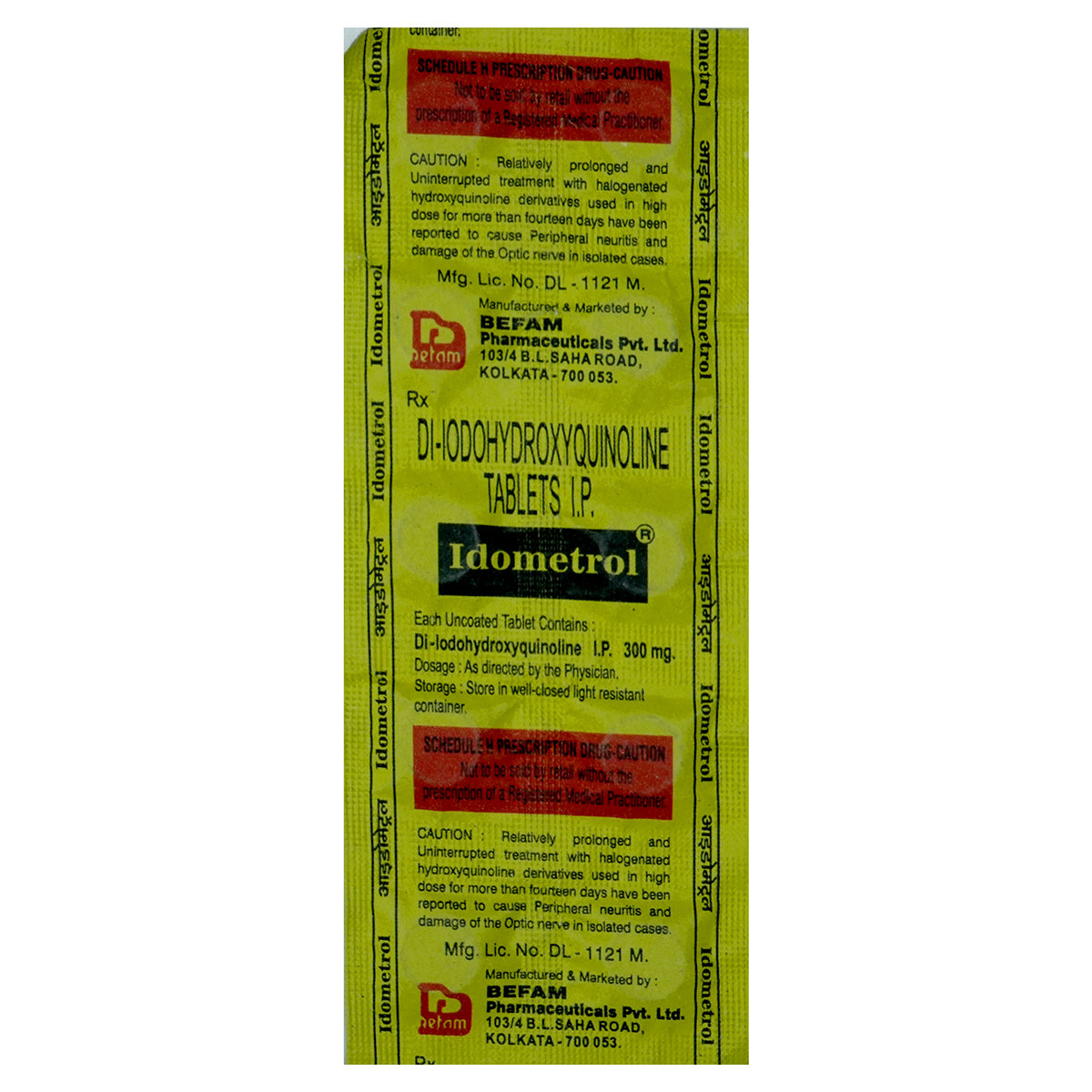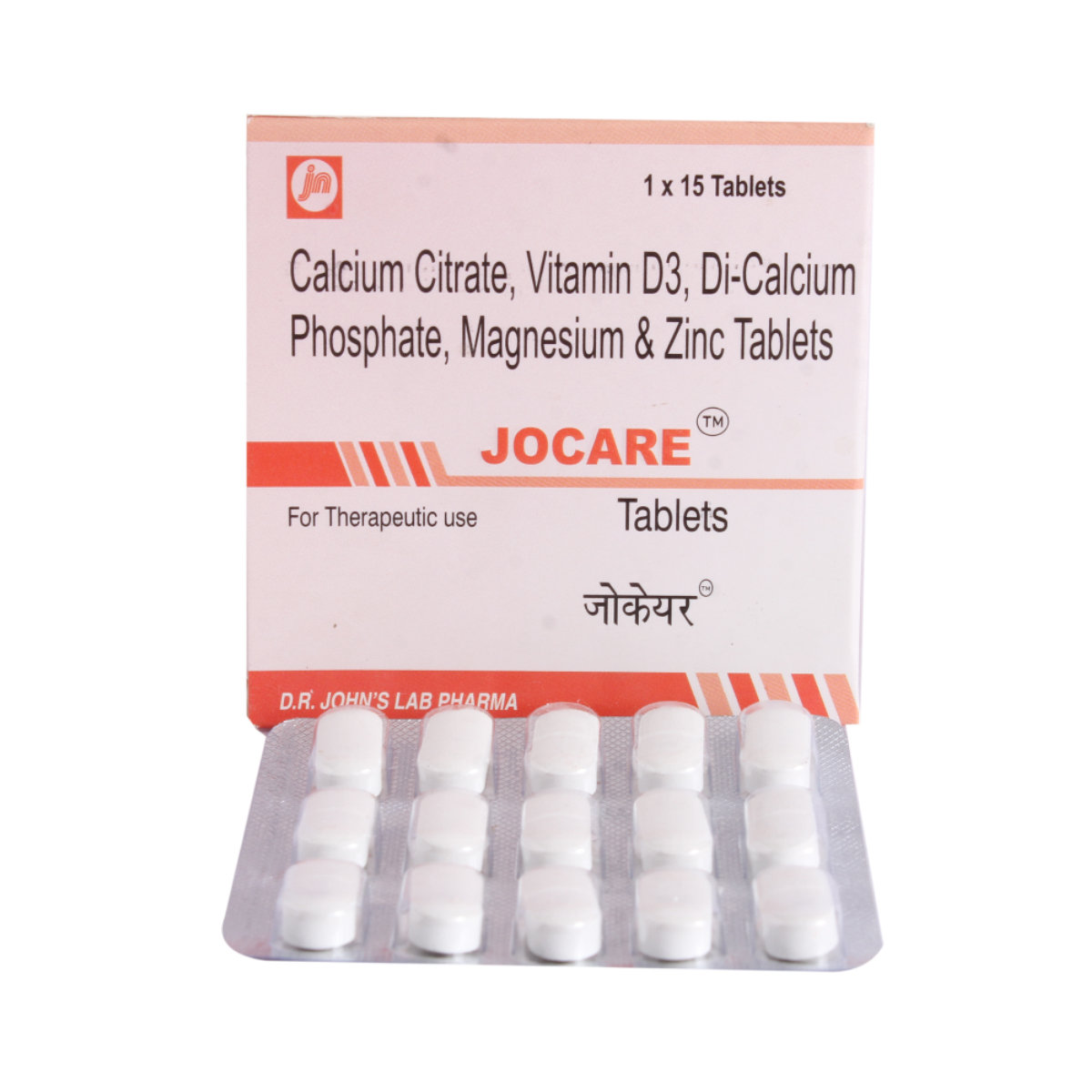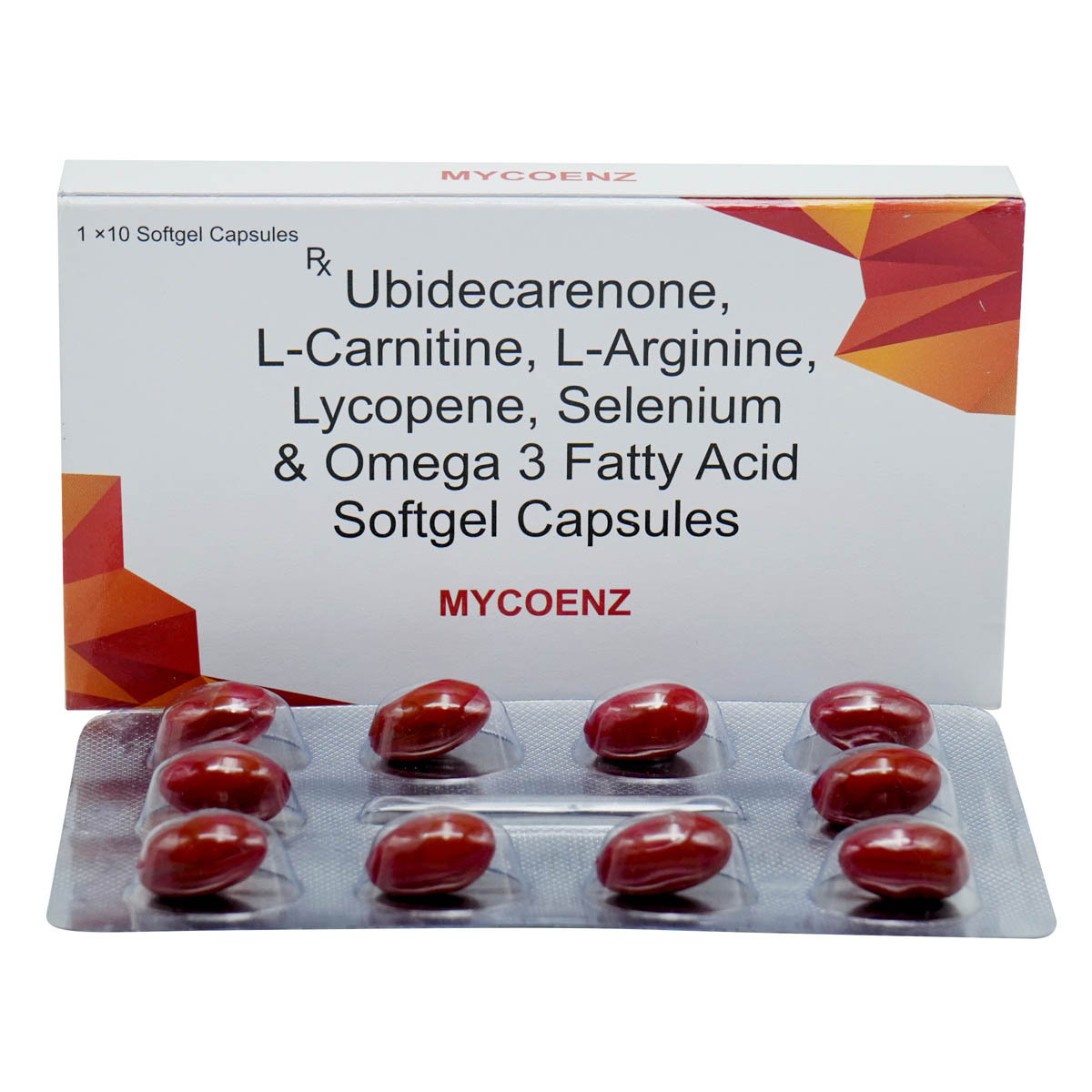Di Iodohydroxyquinoline
About Di Iodohydroxyquinoline
Di Iodohydroxyquinoline belongs to a group of medications called 'antiprotozoal agents' used to treat Amoebiasis, also known as amebic dysentery. Amebiasis, or amebic dysentery, is an intestinal disease caused by protozoa called 'Entamoeba histolytica'.
Di Iodohydroxyquinoline contains 'Di Iodohydroxyquinonlione' that acts against intestinal (lumen) amoeba that forms cysts. Di Iodohydroxyquinoline is poorly absorbed by your intestine and remains in the intestine at a very high concentration. It interferes with the enzymes required for the amoeba's survival in the intestine and forms iron chelate (complex compound), killing amoeba cells and destroying their outer cell wall (cyst) layer. Besides this, it also enhances zinc absorption in the intestine and forms complex chelate of zinc ions which also help destroy amoeba cells.
Di Iodohydroxyquinoline should be taken preferably after meals to avoid gastric irritation. Vomiting, abdominal cramps, diarrhoea, skin itchiness, fever, chills, headache, dizziness and an enlarged thyroid are some of the common side effects of Di Iodohydroxyquinoline, which can occur in some patients. These side effects are mild and temporary and go off after some time. However, if these side effects persist, contact your doctor.
Do not take Di Iodohydroxyquinoline if you are allergic to 'iodine', 'Di Iodohydroxyquinonlione', or any other components present in Di Iodohydroxyquinoline. Before taking this medicine, inform your doctor if you have thyroid problems, as this medicine contains Iodine and may interfere with some thyroid tests. Taking a higher dose of Di Iodohydroxyquinoline by people with optic neuropathy can cause serious optic neuritis. Inform your doctor if you have liver or kidney problems. Tell your doctor if you are pregnant or breastfeeding. Inform your doctor if you take any prescription or non-prescription medicines, herbal products or dietary supplements.
Uses of Di Iodohydroxyquinoline
Medicinal Benefits
Di Iodohydroxyquinoline contains 'Di Iodohydroxyquiononlione', which is antiprotozoal and amebicidal in nature. It acts against growing amoeba, which survives in our intestines and causes diarrhoea. Di Iodohydroxyquinoline forms a chelate or complex compound of iron and zinc in the intestine, which interferes with amoeba working, and thus these protozoa get killed. It is also used to treat Balantidiasis, bacterial and fungal infections.
Directions for Use
- Take Di Iodohydroxyquinoline with food or as advised by your doctor.
- It is advised to take Di Iodohydroxyquinoline 3 times daily; however, follow your doctor's recommendation regarding the dosage and duration.
- Swallow Di Iodohydroxyquinoline as a whole with a glass of water.
- Do not crush, chew, or break Di Iodohydroxyquinoline.
Storage
Side Effects of Di Iodohydroxyquinoline
- Vomiting
- Abdominal cramps
- Diarrhoea
- Skin itchiness
- Fever
- Chills
- Headache
- Dizziness
- An enlarged thyroid
Drug Warnings
Do not take Di Iodohydroxyquinoline if you are allergic to 'Di Iodohydroxyquinoline', 'iodine' or any ingredients present in it. Also, it should not be used in patients with liver failure, kidney failure, and chronic diarrhoea, especially in children. It should be cautioned in patients with thyroid problems and neurological disorders (diseases associated with the brain and spinal cord). It is also not recommended for long-term use.
Drug Interactions
Drug-drug interactions: No interactions found or established.
Drug-food interactions: Alcohol consumption may increase the risk of side effects.
Drug-disease interactions: Di Iodohydroxyquinoline should be used with caution in patients with thyroid problems, liver failure, and optic neuropathy (an eye disease).
Drug-Drug Interactions Checker List:
Safety Advice

Alcohol
cautionAlcohol consumption may increase the risk of side effects and worsen your condition.

Pregnancy
cautionPlease consult your doctor. There are no adequate and well-controlled studies on pregnant women. Your doctor will prescribe Di Iodohydroxyquinoline only if the benefits outweigh the risks.

Breast Feeding
cautionConsult your doctor, and there is no substantial research yet on the use of Di Iodohydroxyquinoline in breastfeeding/nursing mothers.

Driving
safe if prescribedDi Iodohydroxyquinoline may not affect your ability to drive.

Liver
cautionThere is limited research on the usage of Di Iodohydroxyquinoline in patients with liver disease. Please consult your physician.

Kidney
cautionThere is limited research on the usage of Di Iodohydroxyquinoline in patients with kidney disease. Please consult your physician.

Children
cautionDi Iodohydroxyquinoline should be used with caution in children below 12 years of age. Your doctor will decide the dose of Di Iodohydroxyquinoline based on your child's condition.
Habit Forming
Diet & Lifestyle Advise
- Avoid consuming contaminated water and food.
- Rest your stomach and bowels, but continue to drink fluids. You can accomplish this by not eating anything and simply drinking clear drinks. Clear liquids include water, weak tea, fruit juice mixed half and half with water, and caffeine-free soft beverages (like lemon-lime soda).
- When you have severe diarrhoea, your body can lose too much fluid, causing dehydration. Dehydration is especially deadly for youngsters and the elderly. You may also lose the minerals your body requires to function effectively. Your doctor may advise you to take an oral rehydration solution, which is a drink that replaces fluids and minerals.
- Avoid acidic beverages, such as orange juice, or caffeinated, like coffee, if you suffer from diarrhoea.
- Eat only hot, freshly cooked meals when travelling to areas where contamination is more likely. Consume no raw veggies or fruit. Only consume bottled water and drinks. Avoid using tap water and ice, and instead, boil water before drinking.
- You may consume soft, simple foods. Soda crackers, toast, simple noodles or rice, prepared cereal, applesauce, and bananas are good options. Slowly consume items that are difficult to digest or may irritate your stomach, such as acidic meals (such as tomatoes or oranges), spicy or fatty foods, meats, and fresh vegetables. You should be able to resume your normal diet in a few days.
- If you suffer cramps or stomach aches, a hot water bottle or heating pad on your stomach may assist. Cover the hot water bottle with a cloth or use a heating pad on low heat to avoid burning your skin.
- When camping or hiking, only drink water that has been purified by boiling, appropriate filtration, or disinfection tablets.
- Rest as much as you can. Prop your head up while sitting or lying down. After eating, lie down for at least 2 hours.
Patients Concern
Disease/Condition Glossary
Amoebic dysentery: It is an intestinal (bowel) illness caused by a parasite (amoeba) known as Entamoeba histolytica spread through human faeces (poop). Usually, there are no symptoms, but sometimes it causes diarrhoea (loose stool/poop), nausea (a feeling of sickness in the stomach) and weight loss.
Balantidiasis: Balantidiasis is the inflammation of the large intestine (colon) caused by Balantidium coli. Symptoms include chronic diarrhoea, nausea, abdominal pain and weight loss.
FAQs
Di Iodohydroxyquinoline belongs to a group of medications called antiprotozoal agents used to treat Amoebiasis, also known as amebic dysentery.
Di Iodohydroxyquinoline is an antiprotozoal agent used to treat Amoebiasis and Balantidiasis. It acts by identifying and killing the growing parasites in the intestines, which cause dysentery.
Di Iodohydroxyquinoline is not recommended for long-term use. This medicine is usually given for 20 days.
Di Iodohydroxyquinoline contains 'iodine' and may interfere with some thyroid tests if this medicine is taken in patients with thyroid problems.
Do not stop taking this medicine even if you feel better, as it may cause a recurrence of symptoms. So, completing the course of therapy as prescribed by your doctor is always recommended.
Di Iodohydroxyquinoline should be taken with food to prevent gastric irritation and side effects such as diarrhoea, nausea, and vomiting.
Before taking Di Iodohydroxyquinoline, let your doctor know if you have any thyroid problems, kidney or liver problems, if you are pregnant or breast-feeding, and if you are taking any prescription or non-prescription medicines, dietary supplements, or herbal products.
No, Di Iodohydroxyquinoline should not be used for viral infections like cold and flu, as it is used for the treatment of amoebiasis, balantidiasis, and fungal and bacterial infections.
Do not take Di Iodohydroxyquinoline if you are allergic to any of its ingredients. It should be used with caution in patients with thyroid problems and neurological disorders associated with the brain and spinal cord.
The side effects of Di Iodohydroxyquinoline include dizziness, diarrhoea, vomiting, headache, abdominal cramps, skin itchiness, fever, chills, and an enlarged thyroid. Consult the doctor if any of these side effects persist or worsen.
Di Iodohydroxyquinoline should be taken during pregnancy or breastfeeding only if the doctor has prescribed it. The doctor will prescribe this medication only if the benefits outweigh the risks.
If you have missed the dose, take it as soon as you remember and if it's already time for the next dose, skip the missed dose and take the scheduled dose. Do not double the dose.








